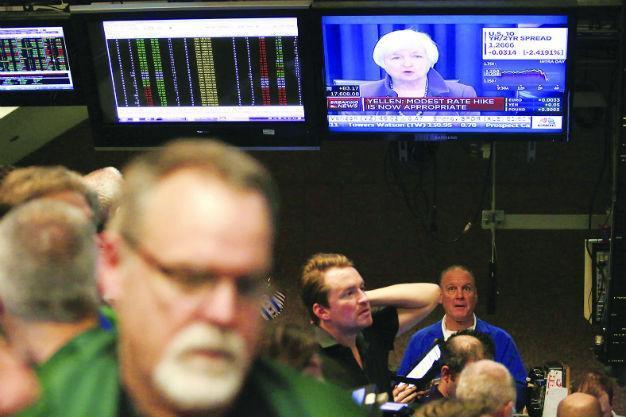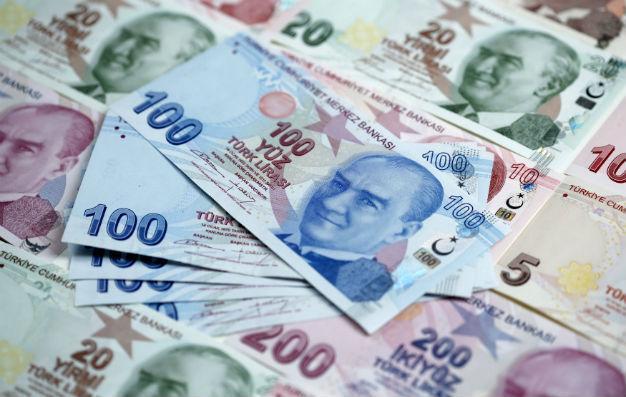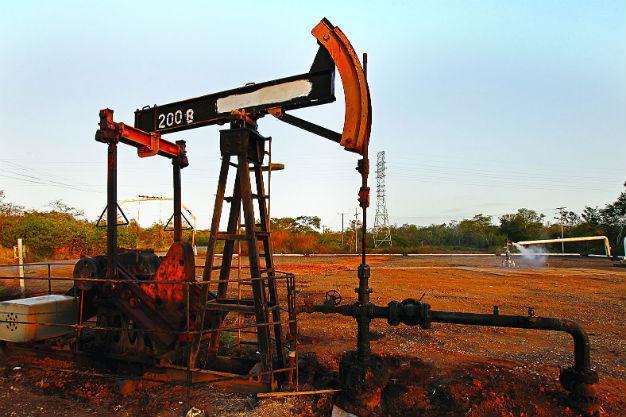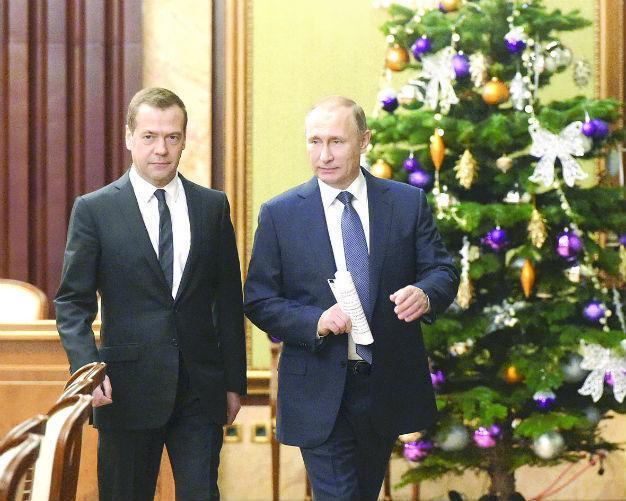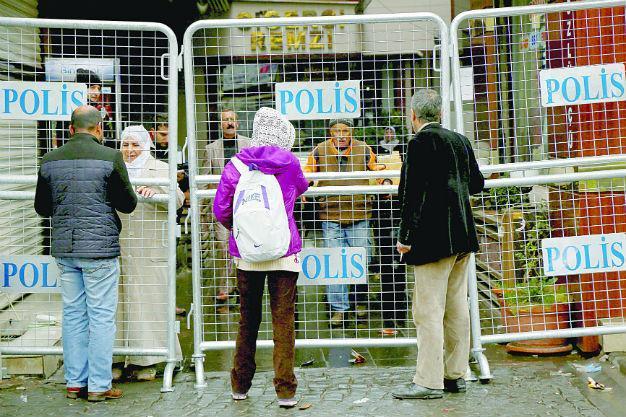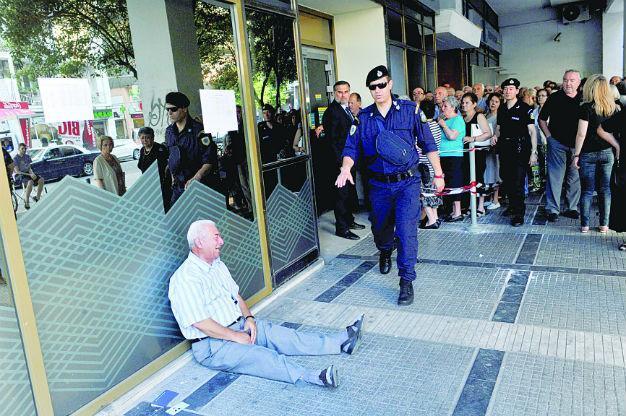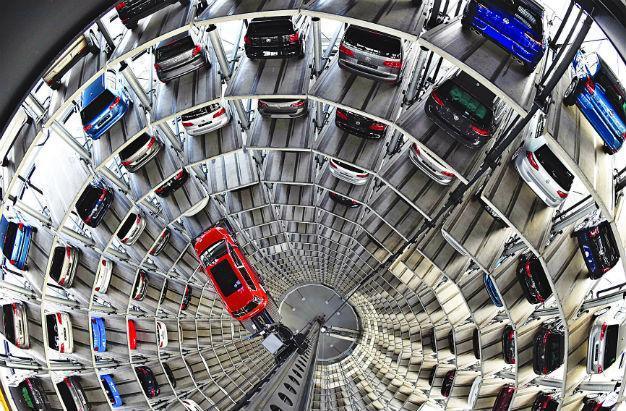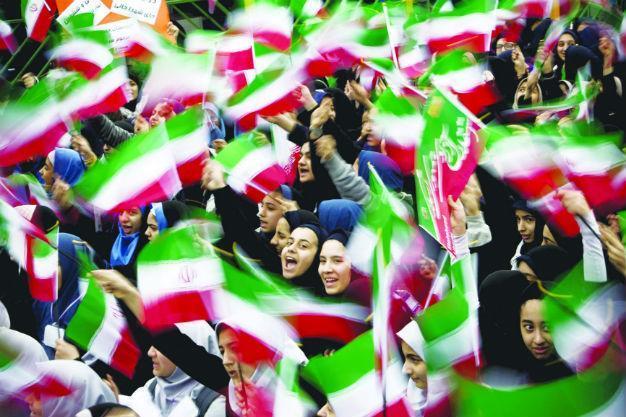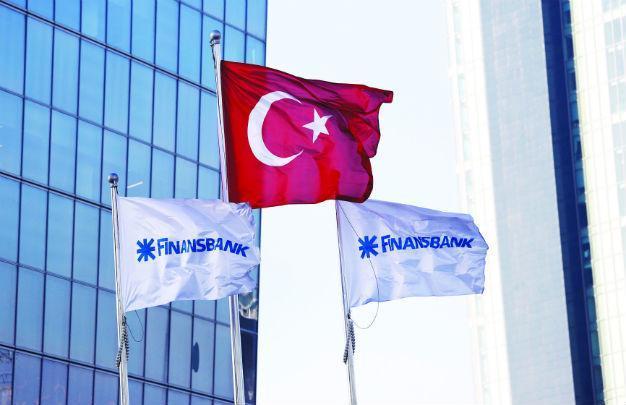Economy in review 2015
ISTANBUL
 1) Markets see sharp routs ahead of Fed’s rate move
1) Markets see sharp routs ahead of Fed’s rate move
The U.S. Federal Reserve finally raised interest rates on Dec. 16, 2015, ending an extraordinary period of government intervention in the financial markets that started at the height of the recession.
Although the global markets eased slightly after the Fed’s rate hike, emerging markets were largely disappointing over the year as they anxiously awaited the Fed’s rate decision, which were compounded by the negative effects of their own local risks.
 AFP photo
AFP photoThe MSCI Emerging Markets Index fell by around 16 percent in 2015, while investors had pulled more than $500 billion from emerging-market equity funds by the end of November 2015, according to the Institute for International Finance.
Emerging markets, headed by China, will be under sharp focus in 2016 in the wake of further capital outflow to developed markets. According to International Monetary Fund figures, the corporate debt of non-financial firms across major emerging markets exploded from $4 trillion in 2004 to more than $18 trillion as of 2014.
2) Local, foreign risks send Turkish lira into freefallThe Turkish Lira was one of the worst performing currencies in 2015 amid a number of local and global risks, losing around 20 percent of its value over the year.
The lira fell to record lows of 3.00 to the U.S. dollar over the summer due to domestic political uncertainty both ahead of and after June elections, escalating violence in the country, rising geopolitical risks, growing tension with Russia, the prospect of a lowered credit-rating outlook, the possibility of a U.S. rate hike, as well as questions raised over the independence of the Turkish Central Bank amid harsh criticisms against the lender from high-level officials about its rate policy.
 REUTERS photo
REUTERS photoTurkey’s high dependence on foreign cash to fund its current-account deficit made it one of the most vulnerable to the Fed’s rate hike.
The escalation of violence has also triggered concerns over political risks in a year in which there were two critical elections, the second of which ended with the establishment of a government by the Justice and Development Party (AKP).
3) Oil prices slump to 11-year lows, hitting producers
The price of oil fell to its lowest level in 11 years to around $36 per barrel in December 2015 as commodity markets responded to signs that the global slump may deepen in 2016.
The change in the balance between supply and expected demand pushed up crude prices, but they are still well below $40 and much lower than the $110 a barrel seen around 1.5 years ago.
 REUTERS photo
REUTERS photoThe lower oil prices have been a boon for oil importers and consumers, but have negatively affected leading energy producers, including Russia, Saudi Arabia, Central Asian nations and others. The economic risks also have the potential to trigger geopolitical uncertainties, according to experts.
Key oil exporter Saudi Arabia is seeking to diversify its economy as it ran a record high budget deficit of $95 billion, while Azerbaijan was forced to depreciate its currency, the manat, which fell more than 30 percent against the U.S. dollar for the second time in 2015. New projections suggest prices will fall further.
4) Russia imposes punishing sanctions against Turkey
Russia enacted wide-ranging sanctions against Turkey in a wide array of sectors after a Russian jet was downed by Turkey on Nov. 24, 2015.
The moves created deep pessimism among the representatives of several industries that have close connections with Russia, including the energy, tourism, agriculture and construction sectors.
On Dec. 1, 2015, senior-level Russian officials signed a government order which included a list of agricultural products that Russia would no longer import from Turkey starting Jan. 1. On Dec. 30, 2015, Russia said it would prohibit Turkish companies from the construction, tourism and hotel industry, in addition to barring Turkish firms from accepting state and municipal contracts starting Jan. 1. Around 53 Turkish companies, however, were excluded from the sanctions.
REUTERS photo
5) Businesses in eastern Turkey forced to close amid attacksContinuing terror attacks and curfews have dramatically affected businesses in eastern Turkey, as around 500 businesses have closed down in Diyarbakır’s Sur district alone since then, according to businesspeople from the region.
Companies have lost almost 80 percent of their revenue since troubles began in June 2015, they added.
 REUTERS photo
REUTERS photoEconomic hardships in the region started last June amid escalating conflicts between outlawed Kurdistan Workers’ Party (PKK) militants and Turkish security forces. The region has been bearing the economic brunt of these conflicts recently, particularly since Nov. 28, 2015, when Diyarbakır Bar Association head Tahir Elçi was killed, and as a result of multiple curfews. Curfews have been declared in several other southeastern provinces, including Batman, Mardin, Şırnak and Hakkari.Businesspeople in the region have said insurance experts set a price of almost one-fifth on their goods and that banks did not want to postpone loan repayments or provide new loans due to high security risks.
Business leaders said they wanted officials to resolve the issues immediately, adding that they would not be able to survive otherwise.
6) Greece hit by severe cash crisis, secures 3rd bailout
Greeks appeared set to leave the eurozone over the summer after the electorate voted against continued negotiations with creditors in a referendum, only for the country’s leaders to agree to a third bailout for the country’s moribund economy.
For days last summer, long lines formed outside banks as Greeks were restricted to withdrawing 60 euros a day, irrespective of how much money they had in their accounts.
Businesses and tourism facilities suffered greatly, while demonstrators took to the streets in huge numbers either in support or against their country agreeing to the austerity measures.Greece’s third bailout was worth 90 billion euros.
 AFP photo
AFP photo
7) 11 millon VW cars affected by global emission scandalThe diesel emissions scandal has dominated the motor industry this year after German giant Volkswagen said a scandal over falsified U.S. vehicle emission tests could affect 11 million of its cars worldwide as investigations of its diesel models multiplied in September, shocking the car markets.
Volkswagen became the target of regulatory investigations in multiple countries and its stock price fell in value by a third in the days immediately after the scandal broke out. Volkswagen Group CEO Martin Winterkorn resigned, while many other high level officials were sacked. The VW scandal raised awareness over the higher levels of pollution emitted by all vehicles built by a wide range of car makers across the world.
 AFP photo
AFP photo8) Historic deal reached with Iran with economic impactThe United States and other world powers reached a historic agreement with Iran in Vienna in July 2015 in a move aimed at preventing the Islamic republic from building a nuclear weapon in return for the lifting of sanctions that have isolated the country.
Dozens of global companies heralded the great opportunities in the Iranian market, which has been closed for decades, with leading European countries subsequently making trade and economic visits to Iran even as American firms were much more cautious.
U.S. companies are still banned from conducting direct transactions with Iran other than companies operating in the food, aircraft-parts and medicine supply sectors.
Turkish companies have also set eyes on the Iranian market, which is home to some 80 million people
 AFP photo
AFP photo9) Turkish economy grows above estimates in 2015
Turkey’s economy grew at a surprising 4 percent in the third quarter from the same period of the previous year, the Turkish Statistics Institute (TÜİK) said Dec. 10, 2015, beating expectations and suggesting the economy was in better shape than many analysts had forecast.
The “positive surprise” of third-quarter GDP growth of 4 percent pointed to full-year growth of 3.5 to 4 percent and more than 4 percent growth in 2016, according to Turkish officials.
Turkey was beset by worries about political uncertainty in the run-up to a Nov. 1 election, sending the Turkish currency to a record low and prompting foreigners to sell $6 billion in local bonds.
 AA photo
AA photoIn October, the government cut its growth forecasts from 4 percent to 3 in 2015 and from 5 percent to 4 in 2016.
However, the data showed that fundamentals remain resilient, with agriculture and consumer demand particularly strong, despite a sharp drop in the country’s trade.
“This growth is a rather good outcome given the serious political instability due to elections, troubles in the Middle East and surrounding countries and the narrowing demand due to the collapse in commodity prices,” Deputy Prime Minister Mehmet Şimşek said.
10) Enormous tender held for advanced 4G technology
Turkey’s three mobile operators, Turkcell, Vodafone and Avea, won the rights to the country’s advanced 4G network, dubbed 4.5G in Turkey, in an Aug. 26, 2015, tender conducted by the Information and Communication Technologies Authority (BTK).
In the tender, Turkcell offered around 1.9 billion euros for eight packages, Avea offered 1.1 billion euros for five packages and Vodafone offered $918 million euros for five packages. Turkish officials hailed the beginning of a new age for Turkey’s information technology with the advent of 4.5G. Fiber technology is the most critical aspect of the launch of 4.5G technology in Turkey thanks to several adaptations.
Qatar National Bank (QNB), the Gulf region’s largest bank, has agreed to buy Turkey’s Finansbank from the National Bank of Greece (NBG) for 2.7 billion euros ($2.95 billion) on Dec. 22, as it steps up its search for larger markets overseas.
With the latest acquisition, Qatari companies have strengthened their hands in the Turkish market after a number of deals.
 AA photo
AA photoThe Greek bank had to put its Turkish subsidiary up for sale to plug a capital shortfall identified by European Central Bank (ECB) stress tests in October.
Finansbank is the fifth largest privately owned bank by assets, deposits and loans in Turkey, and has one of the highest capital adequacy ratios among Turkish banks, according to data
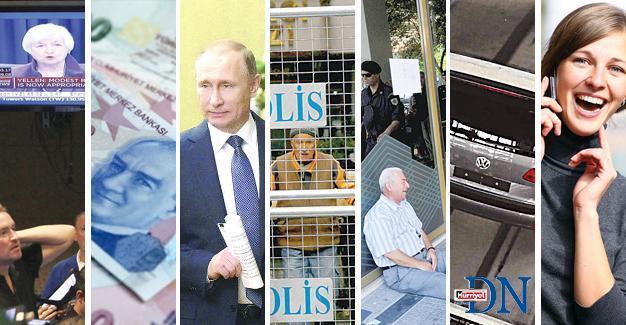 1) Markets see sharp routs ahead of Fed’s rate move
1) Markets see sharp routs ahead of Fed’s rate move